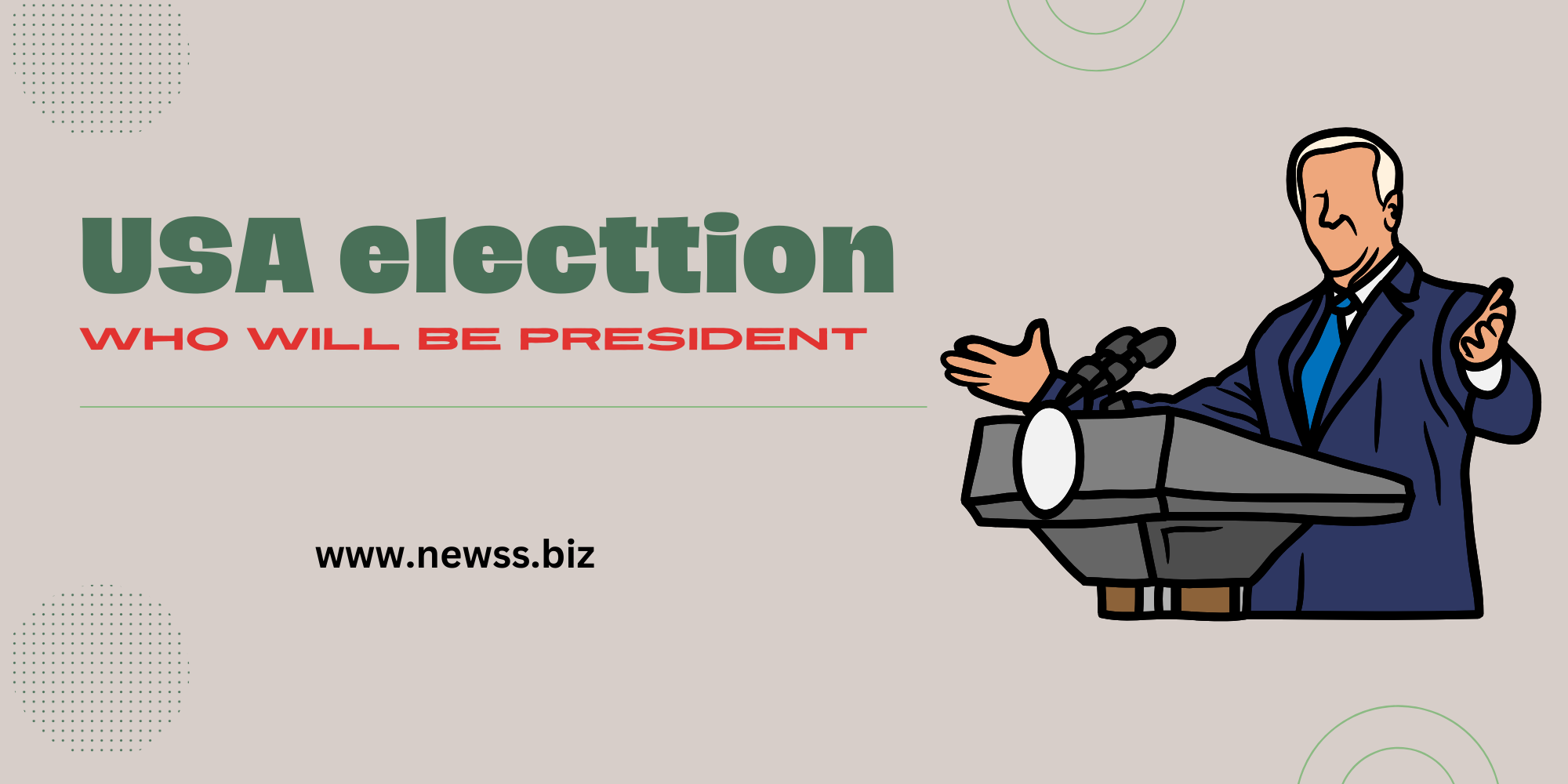The 2024 presidential election is shaping up to be one of the most closely watched and fiercely contested elections in recent American history. With Vice President Kamala Harris and former President Donald Trump as the likely candidates, the race is set against a backdrop of a deeply divided nation. Both candidates bring strong legacies, distinct political ideologies, and a wealth of experience to the table. In this blog post, we will explore the factors that could influence the outcome of this election, drawing on past events and political trends.
Kamala Harris: A Trailblazer with a Vision for Change
Background and Career: Kamala Harris, the first woman, the first Black woman, and the first person of South Asian descent to serve as Vice President, has a storied career in public service. Before becoming Vice President, Harris served as the Attorney General of California and a U.S. Senator. Her career has been marked by a focus on justice reform, healthcare, and civil rights.
Political Strengths:
- Diversity and Representation: Harris represents a significant shift towards a more inclusive political landscape. Her candidacy resonates with women, minorities, and progressive voters who seek greater representation.
- Experience: Harris’s tenure as Vice President and her prior roles have equipped her with a deep understanding of federal governance and legislative processes.
- Policy Focus: Harris has been a vocal advocate for criminal justice reform, climate action, and healthcare expansion. Her policies aim to address systemic inequalities and promote social justice.
Challenges:
- Polarization: Harris’s progressive stance may alienate moderate and conservative voters. Her policies on immigration, climate change, and social justice have been points of contention.
- Public Perception: Despite her achievements, Harris has faced criticism over her handling of certain issues as Attorney General and her performance as Vice President. Public perception will play a critical role in her campaign.
Donald Trump: A Controversial Figure with a Loyal Base
Background and Career: Donald Trump, the 45th President of the United States, remains a polarizing figure in American politics. His tenure was marked by significant policy shifts, economic growth, and numerous controversies. Despite losing the 2020 election, Trump has maintained a strong influence over the Republican Party.
Political Strengths:
- Loyal Base: Trump commands a dedicated following. His supporters appreciate his straightforward communication style, economic policies, and stance on immigration and national security.
- Economic Policies: Trump’s focus on tax cuts, deregulation, and trade policies resonated with many Americans, particularly in the business community and among working-class voters.
- Media Savvy: Trump’s ability to dominate media cycles and leverage social media for his campaign is unparalleled. His communication strategy has kept him relevant in political discourse.
Challenges:
- Controversies: Trump’s presidency was marred by numerous controversies, including his handling of the COVID-19 pandemic, allegations of misconduct, and the January 6 Capitol riot.
- Polarization: Like Harris, Trump’s polarizing nature may work against him. His rhetoric and policies have alienated many voters, particularly among minorities and urban populations.
Comparative Analysis: Key Issues and Voter Demographics
Economic Policy:
- Harris: Advocates for progressive taxation, increased social spending, and green energy investments. Her economic plan focuses on reducing income inequality and providing support to marginalized communities.
- Trump: Emphasizes tax cuts, deregulation, and support for traditional energy industries. His economic approach aims to stimulate growth through private sector incentives and reduced government intervention.
Healthcare:
- Harris: Supports expanding the Affordable Care Act and moving towards a more universal healthcare system. She emphasizes the need for affordable and accessible healthcare for all Americans.
- Trump: Opposes universal healthcare and aims to reduce government involvement in healthcare. His focus is on reducing costs through market-driven solutions and deregulation.
Climate Change:
- Harris: Strong advocate for aggressive climate action. Supports rejoining international agreements, investing in renewable energy, and implementing policies to reduce carbon emissions.
- Trump: Skeptical of climate change policies that he believes hurt the economy. Supports the expansion of fossil fuels and rolling back regulations on energy industries.
Social Justice:
- Harris: Promotes policies to address systemic racism, police reform, and social justice. Her background in law and advocacy for civil rights is central to her platform.
- Trump: Focuses on law and order, supporting strong policing and opposing movements that he perceives as undermining public safety. His stance appeals to voters concerned with security and traditional values.
Voter Demographics:
- Harris: Likely to attract young voters, minorities, urban residents, and progressive Democrats. Her campaign may hinge on mobilizing these groups to turn out in large numbers.
- Trump: Appeals to older voters, rural populations, working-class whites, and conservative Republicans. His strategy will involve energizing his base and addressing concerns of economic and national security.
Impact of Past Events
2020 Election and Capitol Riot: The 2020 election and the subsequent Capitol riot significantly shaped the political landscape. For Trump, the events have solidified his base’s loyalty but also galvanized opposition. For Harris, these events highlight the stakes of the upcoming election and the importance of democratic stability.
COVID-19 Pandemic: The pandemic response remains a critical issue. Harris’s approach emphasizes science-based policies and healthcare access, while Trump’s focus was on economic reopening and vaccine development. Voter perception of their respective responses will influence the election.
Supreme Court and Judicial Appointments: The composition of the Supreme Court and judicial appointments remain key issues. Trump’s conservative appointments resonate with his base, while Harris’s potential appointments would likely aim to balance the court’s ideological leanings.
Frequently Asked Questions (FAQs)
1. What are the main issues in the 2024 presidential election?
- Key issues include the economy, healthcare, climate change, social justice, and national security. Voter priorities will shape the candidates’ campaigns and policy proposals.
2. How does Kamala Harris’s background influence her candidacy?
- Harris’s diverse background and career in public service make her a symbol of progressive change. Her experience as Vice President and in the Senate provides her with significant political acumen.
3. How has Donald Trump maintained his influence post-presidency?
- Trump’s influence persists through his strong base, media presence, and control over the Republican Party. His ability to command attention and shape political discourse keeps him relevant.
4. What role does voter turnout play in the election?
- Voter turnout is crucial. Both candidates need to mobilize their bases and attract swing voters. High turnout among key demographics will be a determining factor in the election’s outcome.
5. How might third-party candidates impact the election?
- Third-party candidates can influence the election by drawing votes away from the main candidates, potentially affecting the final result in closely contested states.
6. What are the implications of the 2024 election for the future of American politics?
- The 2024 election will have significant implications for policy direction, political polarization, and the balance of power. The outcome will shape the national and international landscape for years to come.
Conclusion
The 2024 presidential election between Kamala Harris and Donald Trump is poised to be a defining moment in American history. Both candidates represent contrasting visions for the future, with their own strengths and challenges. As the campaign unfolds, the nation’s political, social, and economic dynamics will play a critical role in determining the next President of the United States. Regardless of the outcome, the election will underscore the importance of democracy and the power of the American electorate in shaping the country’s path forward.

